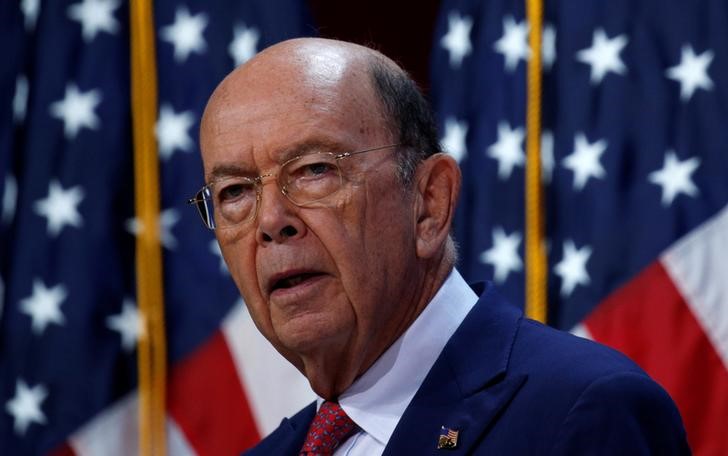By Joseph Nasr
BERLIN (Reuters) - The United States might have no choice but to resort to "broad-scale" measures to fight steel dumping should its partners fail to help find a common solution to the problem, U.S. Commerce Secretary Wilbur Ross said on Tuesday.
Ross, speaking via live stream to an economic event in Berlin attended by Chancellor Angela Merkel, said that even countries that were not direct sources of dumping could face difficulties under these circumstances.
He did not specify what kind of measures President Donald Trump would take to tackle overcapacity in the steel sector, a major issue for an administration that says it wants to make U.S. trade ties fairer.
"If President Trump takes action on dumping it will be in the hope of provoking a collective solution by importing nations," Ross told members of Merkel's conservative Christian Democratic Union.
"Lacking strong action in conjunction with our partners we may have no alternative but to engage in self help," he said. "If we do so it might have to be on a broad scale."
Ross has previously said he hoped to complete by the end of June a national security study of the U.S. steel industry that could result in broad new steel import restrictions.
The commerce department is invoking a Cold War-era trade law that allows the president to limit imports of certain products and materials deemed critical for national defense.
Timing of the review's results and any subsequent actions are uncertain.
Trump administration officials told Reuters earlier on Tuesday that new steel tariffs were among trade options under consideration against China for Beijing's inaction on reining in North Korea and on international trade issues.
Chinese steel already is subject to dozens of U.S. anti-dumping and anti-subsidy duties, sharply limiting China's direct share of the U.S. steel market. New restrictions under the defense review could have a larger impact on steel imported from U.S. allies such as Germany, Japan and South Korea.
In his remarks to the conference, Ross also mentioned pharmaceuticals, chemicals and transportation as other sectors in which the United States ran a particularly large deficit with the European Union, but said the two blocs should work together to tackle dumping by third countries.

Taking the floor after Ross had spoken, Merkel welcomed Ross's calls for resumed work on a U.S.-EU trade agreement but stressed that Germany's investments in the United States were major job creators for the country.